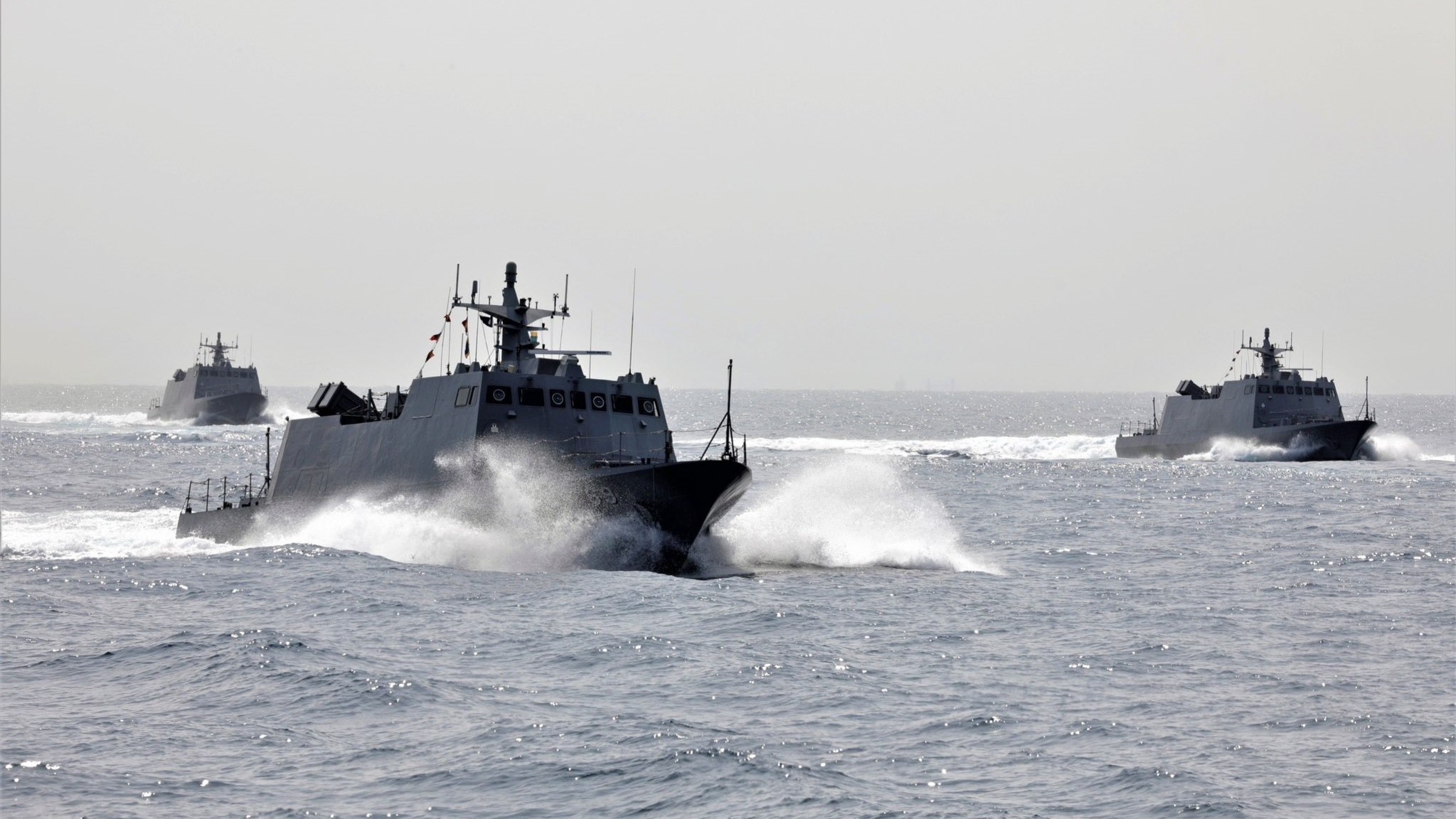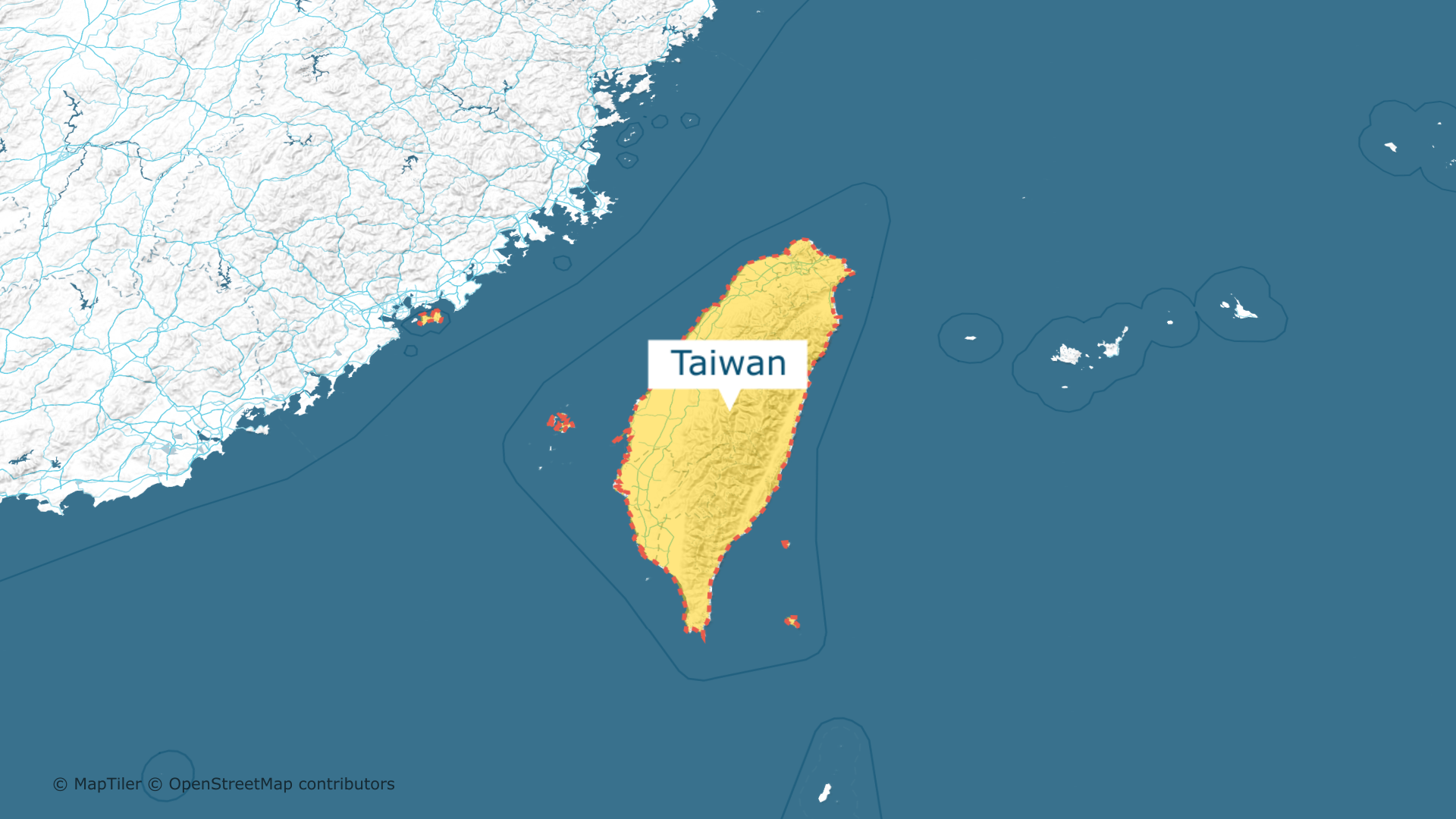
Taiwan runs first-ever war games to simulate a military escalation with China

Taiwan has conducted its first-ever tabletop exercise simulating a military escalation with China.
The island has been facing renewed Chinese military threats, including the large massing of naval forces this month and daily military activities close to democratically governed Taiwan, which Beijing claims as its own.
According to reports, dozens of central and local government agencies as well as civil groups participated in the three-hour war game.
The war game was reportedly held inside the Presidential Office in Taipei and was led by Vice President Hsiao Bi-khim and National Security Council Secretary-General Joseph Wu.
A security official said the exercise simulated scenarios including China's high intensity grey-zone warfare.
Another scenario saw Taiwan on the brink of conflict in order to test the response and readiness of various government and civil agencies.
President Lai Ching-te, in response to the war game, said Taiwan was racing against time to build up its capacity to counter disasters and boost its "deterrence against an invading enemy".
He added: "The peace and stability in the first island chain is being collectively challenged by authoritarian states."
The first island chain is a collection of archipelagos running roughly from Indonesia in an arc northeast to Japan, encompassing the South China Sea and East China Sea.
China has staged two rounds of major exercises around Taiwan this year to pressure Taipei, one in May and one in October, called Joint Sword 2024 A and B respectively.
Doctor Raymond Kuo, an expert in International Security and East Asia, told BFBS Forces News the UK would likely become involved if a war between China and Taiwan were to break out.
Rising tensions between the two Asian nations have caused widespread concern over the supply of semiconductor chips.
Military expert Veerle Nouwens said China's perception of how it needs to engage with the world had shifted over time, with it now looking to grow its sphere of influence through its armed forces.
The executive director of IISS-Asia spoke to BFBS Forces News about China's growing military cooperation with other nations, explaining how a country with a historically inward-focused military strategy now seemed to be expanding its horizons.
Ms Nouwens said there had been a shift in strategic thinking in the military that China needs to be able to protect its assets around the world.
Why is Taiwan politically significant?
Taiwan has been self-governing since nationalist forces fled there in 1949 after the communists took control of China.
It is considered to be a rebel province by China, which claims the island as its territory and opposes any engagement by Taiwanese officials with foreign governments.
China views Taiwan as a province it will win back, while the US sees it as independent.

Beijing has been increasing both diplomatic and military pressure in recent years.
It cut off all contact with Taiwan's government in 2016 after President Tsai Ing-wen refused to endorse its claim that the island and mainland together make up a single Chinese nation, with communist Beijing as the sole legitimate government.









